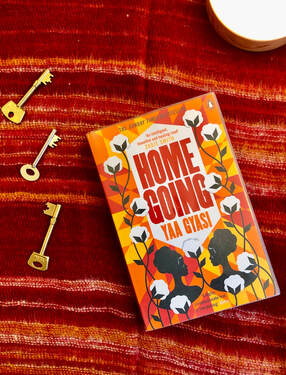The editor who reads too much |
|
I’m overwhelmingly grateful to Yaa Gyasi for opening my eyes to something I know little about. I originally thought the message from the book was “That’s life.” On further contemplation I’ve realized it’s actually, “That’s people.” This book weaves through time and history, and as a reader, I wanted certain connections to happen, but they never did. While it was frustrating, I also constantly reminded myself that most of the connections that happen in many stories are a type of wish fulfillment; this story never lets you forget that it isn’t really how life is. What drove me nuts, you ask? The characters were aware of their family history to a certain extent, but I wanted them to be looking for their roots. It was such a strong desire that I had to put the book down from time to time and ask myself why it was so important to me that a person be interested in knowing where they come from. I haven’t been able to answer that yet. Once I finished, I was left with so many questions. How can people search for their roots if they were torn from them? How many connections in life are really coincidence? How much history have we lost? The world has yet to own up to its role in the destruction of Africa’s families and the effects that has on its descendants to this day. Somewhere in my past, my ancestors must have played some part, yet those are not the stories that get passed down. It’s part of the lost history. My world feels a little darker right now. Title: Homegoing
Author: Yaa Gyasi Genre: Fiction Publisher: Knopf Comments are closed.
|
Categories
All
Archives
July 2024
�
Posts on editing
Posts on books
Posts on publishing
Everything Else!
|

